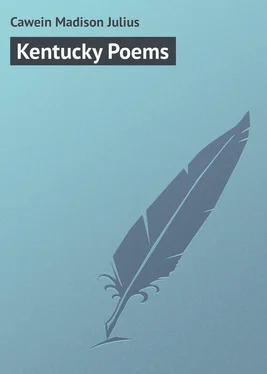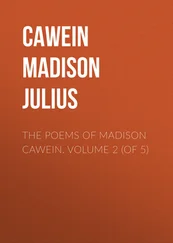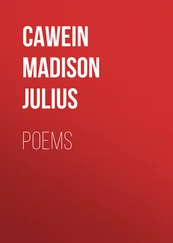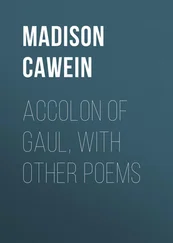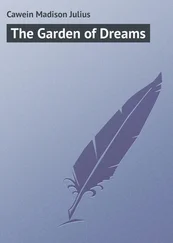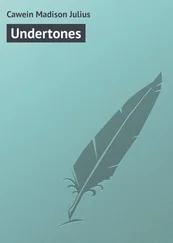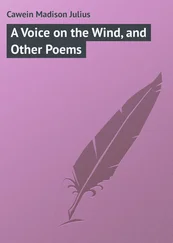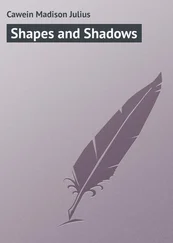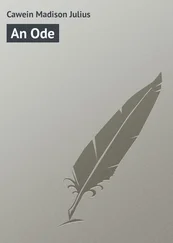Madison Cawein - Kentucky Poems
Здесь есть возможность читать онлайн «Madison Cawein - Kentucky Poems» — ознакомительный отрывок электронной книги совершенно бесплатно, а после прочтения отрывка купить полную версию. В некоторых случаях можно слушать аудио, скачать через торрент в формате fb2 и присутствует краткое содержание. Жанр: foreign_prose, на английском языке. Описание произведения, (предисловие) а так же отзывы посетителей доступны на портале библиотеки ЛибКат.
- Название:Kentucky Poems
- Автор:
- Жанр:
- Год:неизвестен
- ISBN:нет данных
- Рейтинг книги:5 / 5. Голосов: 1
-
Избранное:Добавить в избранное
- Отзывы:
-
Ваша оценка:
- 100
- 1
- 2
- 3
- 4
- 5
Kentucky Poems: краткое содержание, описание и аннотация
Предлагаем к чтению аннотацию, описание, краткое содержание или предисловие (зависит от того, что написал сам автор книги «Kentucky Poems»). Если вы не нашли необходимую информацию о книге — напишите в комментариях, мы постараемся отыскать её.
Kentucky Poems — читать онлайн ознакомительный отрывок
Ниже представлен текст книги, разбитый по страницам. Система сохранения места последней прочитанной страницы, позволяет с удобством читать онлайн бесплатно книгу «Kentucky Poems», без необходимости каждый раз заново искать на чём Вы остановились. Поставьте закладку, и сможете в любой момент перейти на страницу, на которой закончили чтение.
Интервал:
Закладка:
It was Mr. Howells, – ever as generous in discovering new native talent as he is unflinching in reproof of the effeteness of European taste, – who first drew attention to the originality and beauty of Mr. Cawein's poetry. The Kentucky poet had, at that time, published but one tentative volume, the Blooms of the Berry , of 1887. This was followed, in 1888, by The Triumph of Music , and since then hardly a year has passed without a slender sheaf of verse from Mr. Cawein's garden. Among these (if a single volume is to be indicated), the quality which distinguishes him from all other poets, – the Kentucky flavour, if we may call it so, – is perhaps to be most agreeably detected in Intimations of the Beautiful . But it is time that I should leave the American lyrist to make his own appeal to English ears, with but one additional word of explanation, namely, that in this selection Mr. Cawein's narrative poems on mediæval themes, and in general his cosmopolitan writings, have been neglected in favour of such lyrics as would present him most vividly in his own native landscape, no visitor in spirit to Europe, but at home in that bright and exuberant West —
Where, in the hazy morning, runs
The stony branch that pools and drips,
Where red-haws and the wild-rose hips
Are strewn like pebbles; where the sun's
Own gold seems captured by the weeds;
To see, through scintillating seeds,
The hunters steal with glimmering guns.
To stand within the dewy ring
Where pale death smites the bone-set blooms,
And everlasting's flowers, and plumes
Of mint, with aromatic wing!
And hear the creek, – whose sobbing seems
A wild man murmuring in his dreams, —
And insect violins that sing!
So sweet a voice, so consonant with the music of the singers of past times, heard in a place so fresh and strange, will surely not pass without its welcome from the lovers of genuine poetry.
EDMUND GOSSE.
PROLOGUE
There is a poetry that speaks
Through common things: the grasshopper,
That in the hot weeds creaks and creaks,
Says all of summer to my ear:
And in the cricket's cry I hear
The fireside speak, and feel the frost
Work mysteries of silver near
On country casements, while, deep lost
In snow, the gatepost seems a sheeted ghost.
And other things give rare delight:
Those guttural harps the green-frogs tune,
Those minstrels of the falling night,
That hail the sickle of the moon
From grassy pools that glass her lune:
Or, – all of August in its loud
Dry cry, – the locust's call at noon,
That tells of heat and never a cloud
To veil the pitiless sun as with a shroud.
The rain, – whose cloud dark-lids the moon,
The great white eyeball of the night, —
Makes music for me; to its tune
I hear the flowers unfolding white,
The mushroom growing, and the slight
Green sound of grass that dances near;
The melon ripening with delight;
And in the orchard, soft and clear,
The apple redly rounding out its sphere.
The grigs make music as of old,
To which the fairies whirl and shine
Within the moonlight's prodigal gold,
On woodways wild with many a vine:
When all the wilderness with wine
Of stars is drunk, I hear it say —
'Is God restricted to confine
His wonders only to the day,
That yields the abstract tangible to clay?'
And to my ear the wind of Morn, —
When on her rubric forehead far
One star burns big, – lifts a vast horn
Of wonder where all murmurs are:
In which I hear the waters war,
The torrent and the blue abyss,
And pines, – that terrace bar on bar
The mountain side, – like lovers' kiss,
And whisper words where naught but grandeur is.
The jutting crags, – all iron-veined
With ore, – the peaks, where eagles scream,
That pour their cataracts, rainbow-stained,
Like hair, in many a mountain stream,
Can lift my soul beyond the dream
Of all religions; make me scan
No mere external or extreme,
But inward pierce the outward plan
And learn that rocks have souls as well as man.
FOREST AND FIELD
Green, watery jets of light let through
The rippling foliage drenched with dew;
And golden glimmers, warm and dim,
That in the vistaed distance swim;
Where, 'round the wood-spring's oozy urn,
The limp, loose fronds of forest fern
Trail like the tresses, green and wet,
A wood-nymph binds with violet.
O'er rocks that bulge and roots that knot
The emerald-amber mosses clot;
From matted walls of brier and brush
The elder nods its plumes of plush;
And, Argus-eyed with many a bloom,
The wild-rose breathes its wild perfume;
May-apples, ripening yellow, lean
With oblong fruit, a lemon-green,
Near Indian-turnips, long of stem,
That bear an acorn-oval gem,
As if some woodland Bacchus there, —
While braiding locks of hyacinth hair
With ivy-tod, – had idly tost
His thyrsus down and so had lost:
And blood-root, that from scarlet wombs
Puts forth, in spring, its milk-white blooms,
That then like starry footsteps shine
Of April under beech and pine;
At which the gnarled eyes of trees
Stare, big as Fauns' at Dryades,
That bend above a fountain's spar
As white and naked as a star.
The stagnant stream flows sleepily
Thick with its lily-pads; the bee, —
All honey-drunk, a Bassarid, —
Booms past the mottled toad, that, hid
In calamus-plants and blue-eyed grass,
Beside the water's pooling glass,
Silenus-like, eyes stolidly
The Mænad-glittering dragonfly.
And pennyroyal and peppermint
Pour dry-hot odours without stint
From fields and banks of many streams;
And in their scent one almost seems
To see Demeter pass, her breath
Sweet with her triumph over death. —
A haze of floating saffron; sound
Of shy, crisp creepings o'er the ground;
The dip and stir of twig and leaf;
Tempestuous gusts of spices brief
Borne over bosks of sassafras
By winds that foot it on the grass;
Sharp, sudden songs and whisperings,
That hint at untold hidden things —
Pan and Sylvanus who of old
Kept sacred each wild wood and wold.
A wily light beneath the trees
Quivers and dusks with every breeze —
A Hamadryad, haply, who, —
Culling her morning meal of dew
From frail, accustomed cups of flowers, —
Now sees some Satyr in the bowers,
Or hears his goat-hoof snapping press
Some brittle branch, and in distress
Shrinks back; her dark, dishevelled hair
Veiling her limbs one instant there.
Down precipices of the dawn
The rivers of the day are drawn,
The soundless torrents, free and far,
Of gold that deluge every star.
There is a sound of brooks and wings
That fills the woods with carollings;
And, dashed on moss and flow'r and fern,
And leaves, that quiver, breathe and burn,
Rose-radiance smites the solitudes,
The dew-drenched hills, the dripping woods,
That twitter as with canticles
Of shade and light; and wind, that smells
Of flowers, and buds, and boisterous bees,
Delirious honey, and wet trees. —
Through briers that trip them, one by one,
With swinging pails, that take the sun,
A troop of girls comes – berriers,
Whose bare feet glitter where they pass
Through dewdrop-trembling tufts of grass.
And, oh! their laughter and their cheers
Wake Echo 'mid her shrubby rocks
Who, answering, from her mountain mocks
With rapid fairy horns; as if
Each mossy vale and weedy cliff
Had its imperial Oberon,
Who, seeking his Titania, hid
In coverts caverned from the sun,
In kingly wrath had called and chid.
Интервал:
Закладка:
Похожие книги на «Kentucky Poems»
Представляем Вашему вниманию похожие книги на «Kentucky Poems» списком для выбора. Мы отобрали схожую по названию и смыслу литературу в надежде предоставить читателям больше вариантов отыскать новые, интересные, ещё непрочитанные произведения.
Обсуждение, отзывы о книге «Kentucky Poems» и просто собственные мнения читателей. Оставьте ваши комментарии, напишите, что Вы думаете о произведении, его смысле или главных героях. Укажите что конкретно понравилось, а что нет, и почему Вы так считаете.
